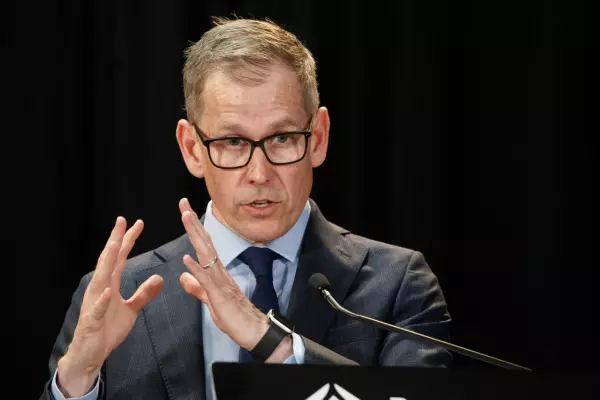Unemployment probably won't rise as much as many people think, according to economist Tony Alexander.
One reason for that is New Zealand went into the coronavirus crisis with a shortage of labour.
"We went into this crisis with a shortage, not just of skilled motivated people, skilled unmotivated people, unskilled motivated people, but unskilled unmotivated people also," Alexander said in his latest Tony's View newsletter.
Another reason is the country has become dependent on the labour of foreigners.
"We need them to pick our fruit, prune our vines, tend to us in old folks' homes, drive equipment on our motorway construction projects, erect our multi-storey buildings and, increasingly, work in our house building sector. Without them, we have a problem," he said.
Yet another is baby boomers may decide to retire.
"Some will have been minimally connected, simply doing some work because it yielded good social connectivity. Others will have been coasting along as we all do, happy with life and seeing no need to initiate any big changes."
The pandemic has generated a wave of soul-searching, Alexander said.
"Many people seem to have decided to initiate lifestyle changes, either earlier than they were planning or which they had simply led slide."
Compliance headaches
Increasing compliance requirements for, say, electricians, may be getting beyond some people and covid-19 will push them to finally stop.
"This issue involving compliance is something I came across a couple of years ago with regard to older builders leaving the sector because of new certification requirements," Alexander said.
"The same probably applies to many people in the financial planning sector where qualification requirements have been lifted."
He noted the employment rate heading into this crisis was 67 percent compared with 65 percent ahead of the Global Financial Crisis.
"A lot of people have entered the workforce – accepted jobs – who don't have families to support but simply opted to accept a job because so many jobs were on offer."
The government's speedy introduction of the wage subsidy has already prevented a lot of potential unemployment.
"When a shock arrives, the inclination and instinct of most businesses will be to protect cash flows and working capital by cutting costs wherever possible, including staff," Alexander said.
"The wage subsidy scheme prevented that from happening and we have now reached a point where businesses are still facing decisions about staffing numbers – but they are baulking," he said.
"They remember the shortages which prevented them from growing over 2019. They see the increasing discussion about labour shortages And they see the unwillingness of the government to make their lives easy and allow a whole lot more migrants.
Retention will be key
"They are learning that growth and survival from now on is not a matter of laying off staff, it is a matter of keeping them."
Alexander pointed to last week's ANZ business confidence survey which showed a net 4 percent of businesses expect their own activity will rise over the next 12 months, a turnaround from a net 5 percent expecting lower activity in the previous survey.
"It still sits below the 10-year average of 23 percent, but the trend is firmly upward and bespeaks of improving growth in the economy," he said.
While a net 3 percent of businesses said they intended to lay off staff, that was an improvement from 12 percent in September and 51 percent in April.
"The worst outlook for NZ's labour market from this crisis has been and gone," Alexander said.
His comments come as many economists, including those at the Reserve Bank, have been revising their unemployment forecasts downwards.
For example, in May, RBNZ was expecting the unemployment rate to peak at 9 percent but had revised that down to 8 percent by August.
The actual unemployment rate fell to 4 percent in the June Quarter from 4.2 percent in March.















